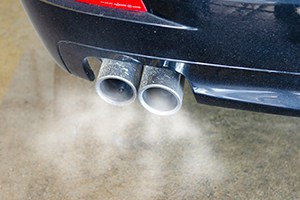 With the 2013 year drawing to a close, the Environmental Protection Agency (EPA) is working hard to draft the ethanol requirements in next year’s Renewable Fuels Standard. Originally passed by Congress in 2005 and 2007, the Renewable Fuels Standard dictates the requirement for biofuels like ethanol in a given year. And while this number has steadily risen in the past nine years, there’s some belief that the EPA could change their stance by lowering the ethanol requirements for 2014. So, why would they want to lower the biofuel requirements? And what repercussions would this have on the fuel industry? To learn the answers to these questions and more, keep reading.
With the 2013 year drawing to a close, the Environmental Protection Agency (EPA) is working hard to draft the ethanol requirements in next year’s Renewable Fuels Standard. Originally passed by Congress in 2005 and 2007, the Renewable Fuels Standard dictates the requirement for biofuels like ethanol in a given year. And while this number has steadily risen in the past nine years, there’s some belief that the EPA could change their stance by lowering the ethanol requirements for 2014. So, why would they want to lower the biofuel requirements? And what repercussions would this have on the fuel industry? To learn the answers to these questions and more, keep reading.
According to a leaked draft of the 2014 Renewable Fuels Standard, the EPA proposes to reduce the amount of ethanol produced in 2014 from its current amount of 18.15 to 15.21 billion gallons. If accurate, this is a substantial decrease that’s bound to draw some fire from biofuel lobbyists and companies. In fact, many professionals working in the biofuel industry have already begun to slam the EPA for reversing decades of hard work shifting the country towards renewable energy sources.
The petroleum industry has praised the EPA for taking steps to reduce the amount of ethanol in gasoline, claiming it’s a smart move that will benefit the entire country. However, a spokesman for the petroleum industry also stated that the reduction of biofuel in the leaked Renewable Fuels Standard proposal isn’t enough, and they hope to push the EPA to reduce the requirements even further.
Of course, there are two sides to every story. One of the biggest problems with biofuel is the potential it has for damaging automobile engines and mechanical parts. Unless the vehicle is modified specifically for biofuel, it can typically handle about 10% ethanol without suffering from any negative effects. Placing gasoline mixed with 11% or higher ethanol into a standard car will gradually wear down the engine and its surrounding components.
Another concern with ethanol along with other ‘biofuels’ is the impact it has on the environment. Some people assume that it’s a safe, environmentally friendly alternative to petroleum-based gasoline, but recent studies reveal the damaging impact it has on the land, water and environment. Farmers plow away millions of acres worth of corn to produce small amounts of ethanol, releasing massive amounts of carbon dioxide into the atmosphere. In addition, farmers are also using heavy chemical-based fertilizer to manage their crops, some of which gets washed down into streams and water supplies.